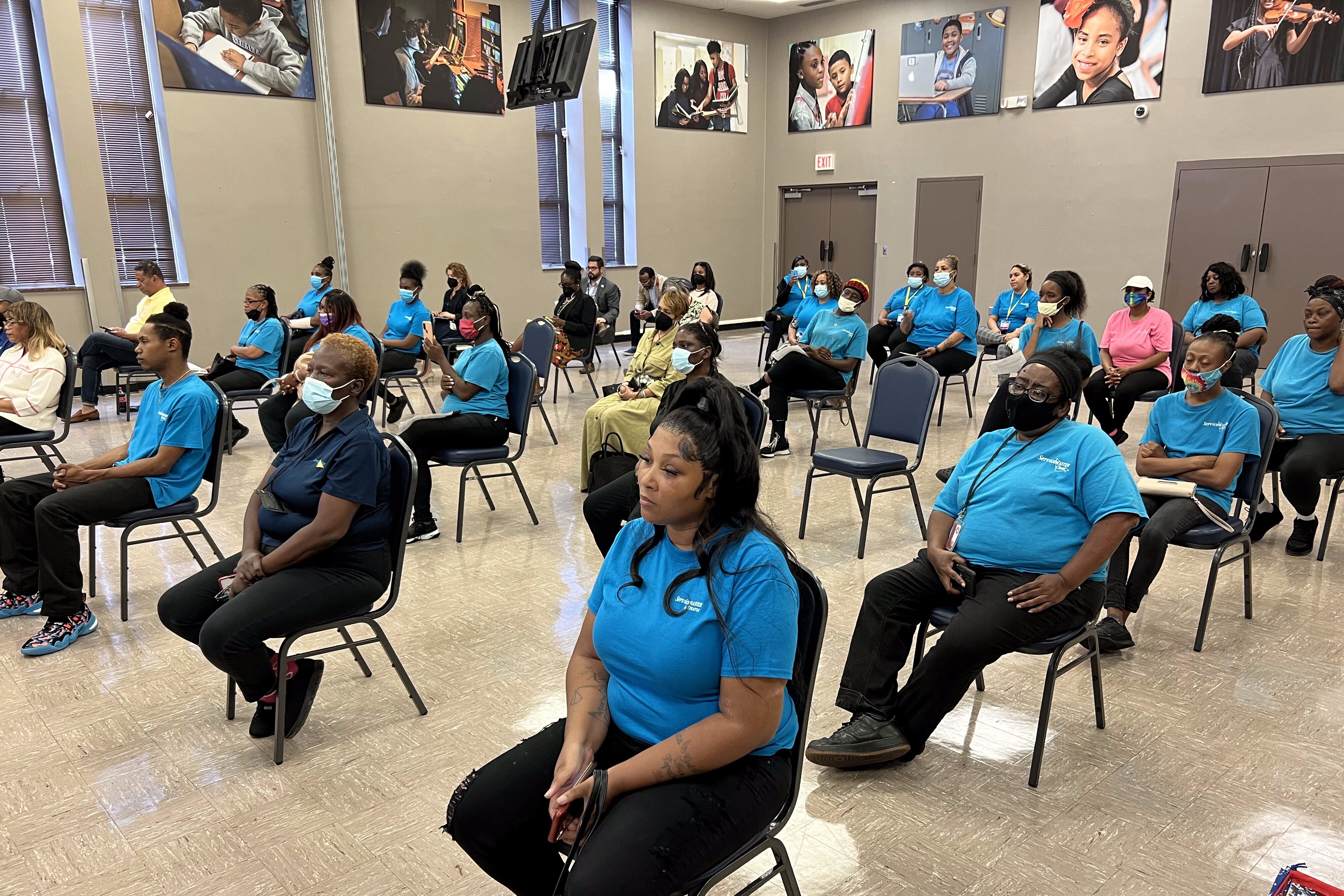After months of debate, Memphis-Shelby County Schools board members on Monday signed off on a $34.4 million custodial services contract that ensures school janitorial workers an hourly base pay rate of $15, up from the current $10.
The board’s 7-0 vote during Monday’s specially called meeting means ServiceMaster Clean — which has two franchises currently working for MSCS — will be the district’s sole provider of cleaning services over the next four years, starting July 1.
For weeks, administrators have said they believe the $34 million contract — a 30% jump from this year’s nearly $26 million contract — would address longstanding community concerns with the cleanliness of classrooms and school facilities. With higher wages, officials said, the district and ServiceMaster Clean could see happier employees, less turnover, and, in turn, cleaner schools.
Despite their previous hesitations, board members agreed.
Their unanimous vote (board members Billy Orgel and Miska Clay Bibbs were absent) was met with loud applause from the ServiceMaster Clean employees who addressed the board during public comment and the roughly 20 others who attended the meeting, dressed in their work uniforms.
Marshall K. Garmon said she and her fellow ServiceMaster Clean employees work “very, very hard” to ensure all schools are clean — especially during the summer. But amid high inflation, she said, the current hourly wage is “just not enough money for us to live.”
Tasha Rhodes, another ServiceMaster Clean employee, said she and many of her coworkers have had to get second or third jobs just to make ends meet.
“We are the reason why the schools are able to be open for our kids to be able to learn in a clean, germ-free, COVID-free environment,” Rhodes told the board. “I’m at a point where I feel like I’m being overworked and underpaid.”
“I’m not asking for a pay raise just for me,” she added, “but for all of us.”
Referencing Memphis’ 1968 sanitation strike, Superintendent Joris Ray said Monday that approving the contract would ensure that critical school custodial workers — most of whom are women of color — have the “dignity of making an honest living wage” and are not forced to work multiple jobs in order to provide for their families.
“This is a moment where we can get this right, not only for those families, but for the entire city of Memphis and Shelby County,” Ray said ahead of the vote.
Just days earlier, the board had rejected the contract in a 4-2 vote, with opponents citing unanswered questions. In recent weeks, several board members questioned why administrators would recommend they continue working with any ServiceMaster operation when many in the community have expressed frustration with school buildings not being properly cleaned and employees not being paid a living wage.
Board Vice Chair Althea Greene was among those who switched her vote on Monday. She emphasized that her vote against the contract last week was not because she didn’t believe ServiceMaster Clean employees deserved a raise but rather because of several unanswered questions that have now been answered.
“My heart is right out there with you, but I wanted my questions to be answered,” Greene said. “I want you to make enough money where you don’t have to work two jobs. I lived that kind of life, working two or three jobs. I want you to be able to buy gas and put food on the table for your families.”
Board member Joyce Dorse-Coleman echoed Greene’s remarks, saying she wanted to ensure ServiceMaster Clean couldn’t cut employees’ hours or give them more work to do after raising the hourly wage.
“I have to make sure that I get it right for you,” she said.
Samantha West is a reporter for Chalkbeat Tennessee, where she covers K-12 education in Memphis. Connect with Samantha at swest@chalkbeat.org.






